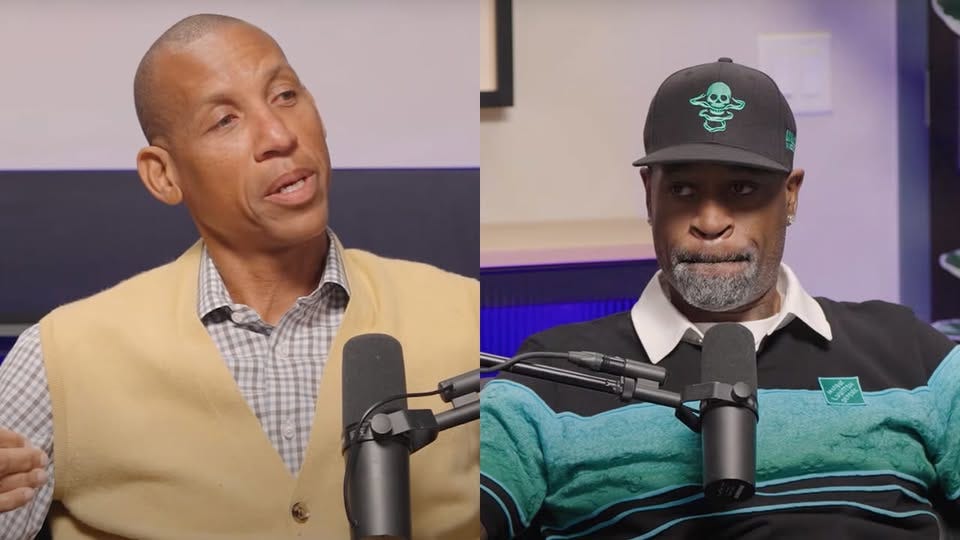Receiving the Unexpected Apology
What the receiver and giver may experience psychologically and emotionally

Receiving an unexpected apology can be overwhelming and cathartic, especially if some type of hurt was deeply buried. Giving such as an expression of sincere remorse to someone could possibly lead to positive emotions, surprisingly towards you.
In a recent interview, a person felt and expressed regret that had been with them for a while, sincerely offering an apology. The recipient of it was strongly moved by it. That moment further connected the relationship between these two people.
“I never got a chance to apologize to you for my actions,” said podcaster and former professional basketball player Stephen Jackson to a former co-worker (teammate), Reggie Miller, about behavior in the workplace (on the court) years ago in an infamous fight, the Malice at the Palace, with another team.
“You don’t have to apologize to me,” Miller responded, showing that what Jackson said was positively emotional for him.
The psychological power of apology can unlock people's healing from buried pain.
What is happening in these types of situations is worthy of understanding.
“When an apology comes unprompted, it bypasses the defenses of performance and obligation,” says Allison Jeanette Briggs, LPC, a trauma-informed therapist and developmental psychology specialist, who works with adults, healing from emotional neglect, codependency, and relationship wounds.
“It tells the nervous system: ‘you are safe to feel this now.’ A sincere apology, especially one that names the harm without deflection, touches unprocessed grief.
“It gives the receiver permission to release what they never felt allowed to feel in the first place.”
It can be highly impactful and end a burden, psychologically, in someone’s psyche.
“This can be profoundly regulating for someone who’s spent years carrying silent pain, wondering if they were overreacting,” Briggs says.
As for the giver of such an apology, they may not be ready for the visual and auditory release of hurt and possible beginning of healing by the recipient of the remorse.
“It may be shocking to witness someone respond genuinely to your apology for a number of reasons,” says Michelle Smith, a private practice virtual therapist, helping people EMDR, clinical hypnosis, couples therapy and group therapy.
“Unfortunately, our society is very conditioned to perceive vulnerability or showing emotion as a 'weakness' of some kind. It is possible to have a conscious or unconscious shame-based response or sense of confusion, if someone becomes deeply emotionally affected when you were not expecting this.”
That may be unwanted by the giver.
“This typically goes back to negative core beliefs that are subconsciously and deeply rooted such as ‘It's not safe to feel’ or ‘I have to be in control.’”

This humanity and courage of extending an apology can benefit the giver as well.
“Genuine apologies restore relational dignity,” Briggs says. “They remind us we are not alone in our perception, not crazy for our pain.”
Stepping towards responsibility can be an act that is welcomed by the receiver — although this isn’t an absolute — and a sign of character and elevated skills.
“In a culture that often prizes defensiveness over accountability, unsolicited repair becomes a radical act of emotional intelligence,” Briggs explains. “Whether it’s one-on-one or public, these apologies model something powerful: that healing isn’t just internal, it’s relational. And when done authentically, it helps the apologizer heal too.”

When a person is positively, visibly emotive after an apology, unexpectedly, the giver of that communicated remorse can help the receiver in a certain way.
“The most powerful thing one can do is sit with someone within their depth of emotion,” Smith says. “Witnessing someone else's experience can be difficult to do, because we ourselves have to be brave enough to be with the discomfort as well.”
The How
“Just being present with them and saying something like, ‘Thank you so much for sharing this with me. I don't even know what to say right now but I'm glad you did,’ instead of trying to fix or solve their problem or taking someone away from their internal experience, can be incredibly powerful,” Smith recommends.
She elaborates on the “why” behind it.
“When we do this, we normalize the humanity within us all and decrease the evidence around those core beliefs, that we must hide or shrink ourselves from these human responses.”
This newsletter normally publishes Tuesday, Thursday and Sunday, with occasional articles on other days. To advertise, link to your business, sponsor an article or section of the newsletter or discuss your affiliate marketing program, contact CI.






Good article, Michael.
We often talk about forgiveness as a personal journey, but sometimes healing comes when someone else acknowledges the harm. It's a rare and unforgettable experience.
So many of us carry around hurts that were never acknowledged, and we grow around them like trees around barbed wire.
Happy Thursday Michael